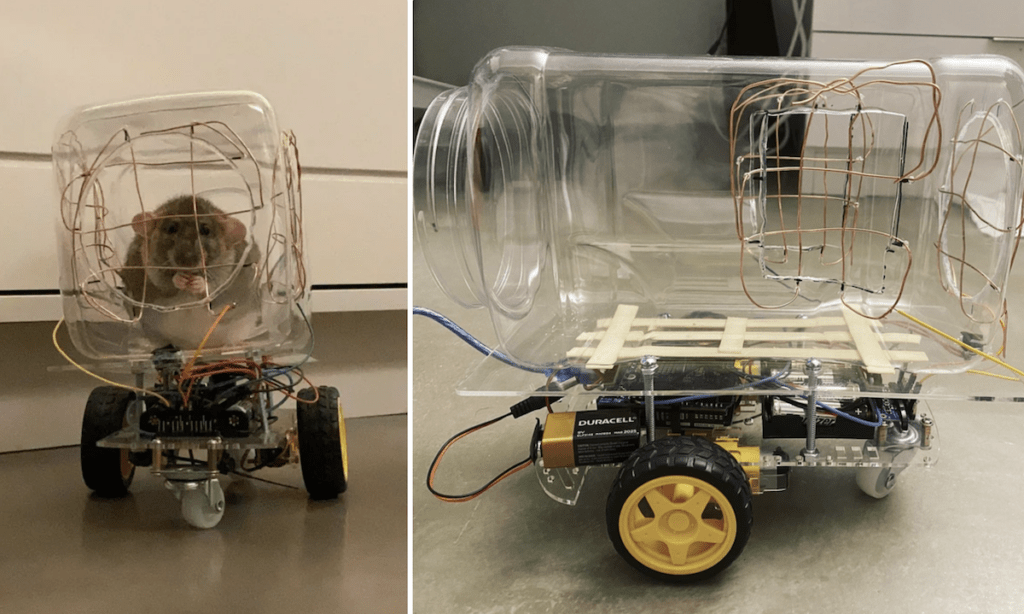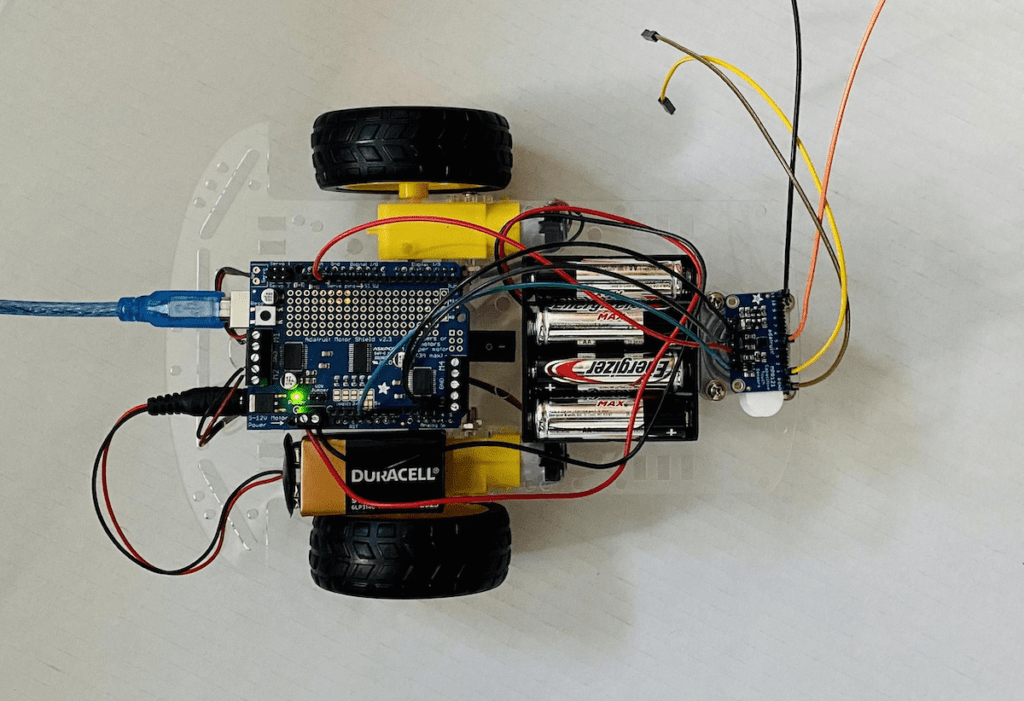Touch-sensitive steering for a RatCar

Bears on tricycles aside, animals are not very good at piloting vehicles. But maybe that is because we haven’t given them controls that suit their thumbless bodies. If a vehicle had controls adapted to a particular animal’s anatomy, could they drive? Back in 2019, researchers at the University of Richmond found that rats could. Inspired by that study, this Instructables user built their own RatCar with touch-sensitive steering.
This RatCar relies on classic behavioral principles established by B.F. Skinner throughout the mid-20th century. Through positive reinforcement, many animals can learn to perform simple tasks. In the case of the RatCar, the tasks are touching one of three touch-sensitive copper meshes that cause the vehicle to move forward, turn right, or turn left. A rat can learn to operate the vehicle through reinforcement training as they receive treats for their actions.

This RatCar consists of a generic robot car chassis paired with an Arduino Uno board. The Uno controls the robot’s two drive motors through an Adafruit Motor Shield v2.3. The rat sits inside of a one-gallon clear plastic container with the three copper mesh panels in front of it. The panels connect to the Arduino through an Adafruit Capacitive Touch Sensor board. The sketch tells the RatCar to move forward, left, or right depending on which panel senses a touch from the rat.
With the hardware ready, everything was in place to ensure the rat’s driving success. From there, it was a matter of using treats to teach the rat what would happen when it touched each panel. Both the university study and this project seem to indicate that rats enjoy the driving experience once they grasp the concept.